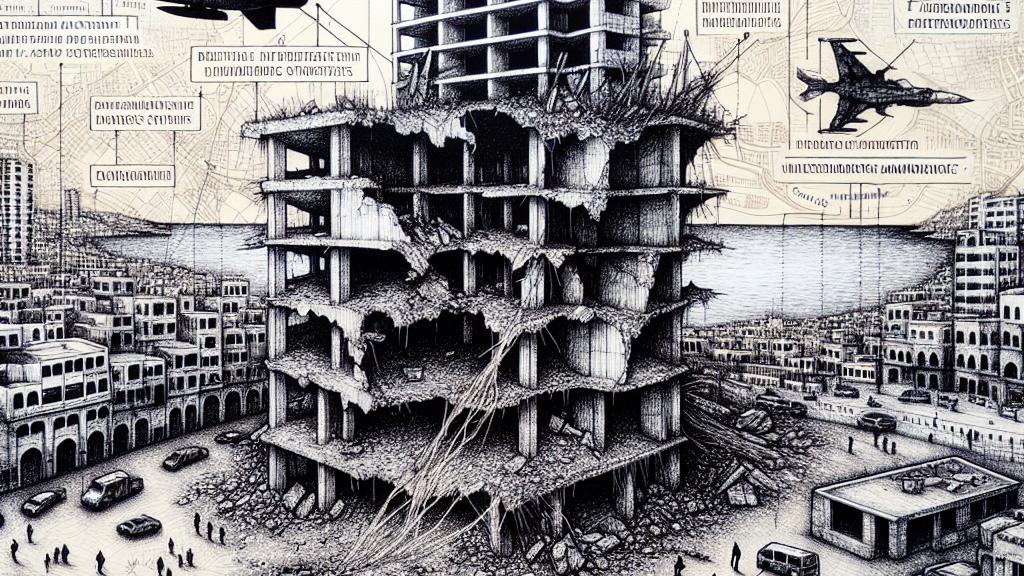Israeli Air Force Strikes Hezbollah Intelligence Headquarters in Beirut
Overview
- On October 20, 2024, the Israeli military launched a decisive airstrike on Hezbollah's intelligence headquarters in the heart of Beirut.
- The operation reportedly led to the deaths of three influential Hezbollah commanders, escalating tensions in the region.
- This ongoing conflict has resulted in over 2,400 casualties and forced widespread displacement, highlighting the urgent need for resolution.

The Strategic Airstrike in Beirut
In a remarkable display of military strategy, the Israeli Air Force executed a precise strike on Hezbollah’s intelligence headquarters on October 20, 2024, within the vibrant cityscape of Beirut. This major offensive not only targeted key intelligence operations but also struck an underground workshop where weapons were purportedly manufactured. Reports indicate that among those killed were three high-ranking Hezbollah commanders, including Alhaj Abbas Salameh, whose strategic importance was considered critical. However, uncertainties remain about whether they perished in this specific strike or in a series of coordinated attacks surrounding the area. This significant escalation follows a protracted period of increased hostilities that re-ignited in 2023, when Hezbollah initiated rocket attacks in solidarity with Hamas during their conflict with Israel, thus amplifying the already volatile regional dynamics.
Understanding Hezbollah's Military Power
Hezbollah showcases the complexity and potency of non-state armed groups, embodying military capabilities that can rival those of national armies. This Lebanese Shiite faction boasts an estimated 100,000 highly trained soldiers, contributing to its designation as one of the most powerful paramilitary organizations globally. Financially backed by Iran, Hezbollah benefits from substantial resources, allowing them access to advanced military training from the Quds Force of the Iranian Revolutionary Guard Corps. They maintain a staggering arsenal of rockets—estimates suggest between 40,000 and perhaps as many as 120,000—positioning them as an imminent threat to Israel's national security. Employing a sophisticated blend of missile strikes and ground infantry tactics, Hezbollah has demonstrated resilience and tactical acumen that often leads them to exploit the challenging mountainous terrain of southern Lebanon, though they remain susceptible to Israel’s advanced technological defenses, particularly the famed Iron Dome missile interception system.
Impacts and Consequences for the Region
The repercussions of this conflict extend far beyond the battlefield, plunging Lebanon into a humanitarian crisis of alarming proportions. Over 2,400 lives have already been lost due to the violence, with a staggering number of displaced citizens seeking refuge from the chaos, particularly in besieged areas of Beirut. Daily life for many has devolved into a relentless struggle marked by fear of aerial bombardment, as Israeli airstrikes continue to instigate terror. As the world watches, Iran's support for Hezbollah through advanced military technology compounds concerns about a wider regional conflagration. Capturing attention recently, a barrage of Iranian missile launches targeted Israel, with most intercepted successfully by Israeli defense mechanisms, underscoring the intense confrontation at play. Amid the ongoing turmoil, the clamor for diplomatic solutions and ceasefires becomes increasingly urgent, yet achieving lasting peace appears elusive against the backdrop of suffering, chaos, and rising tensions that envelop Lebanon and its neighbors.

Loading...